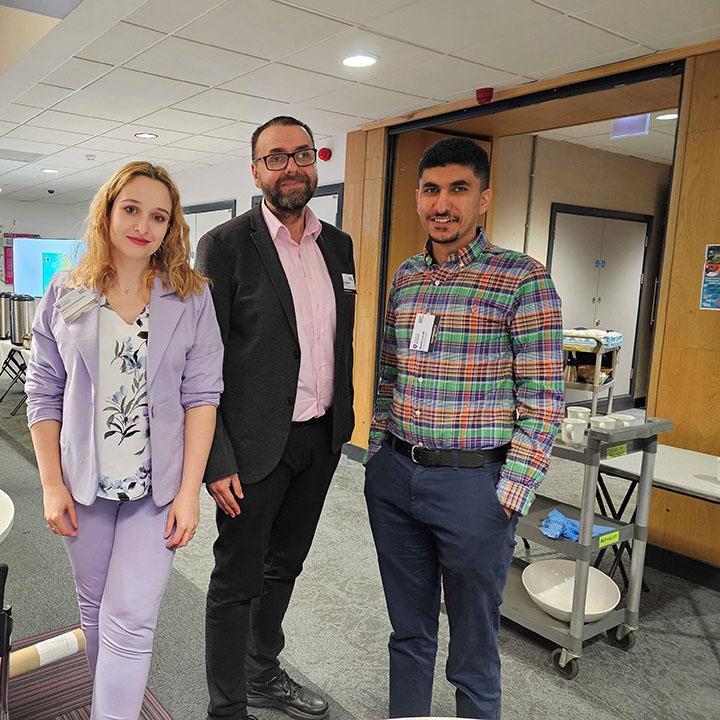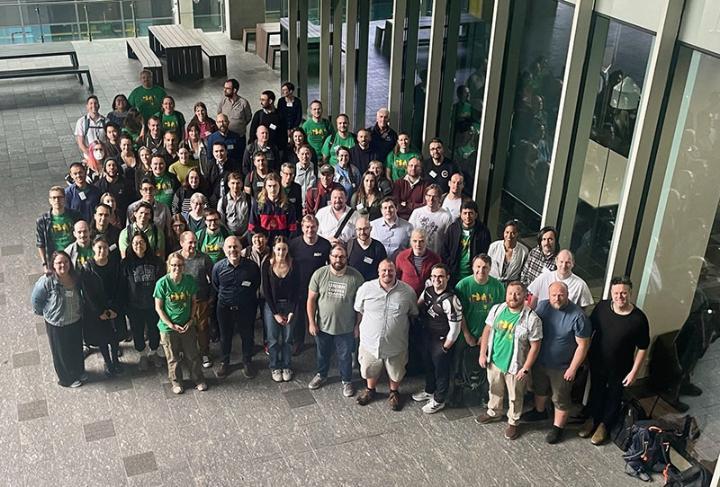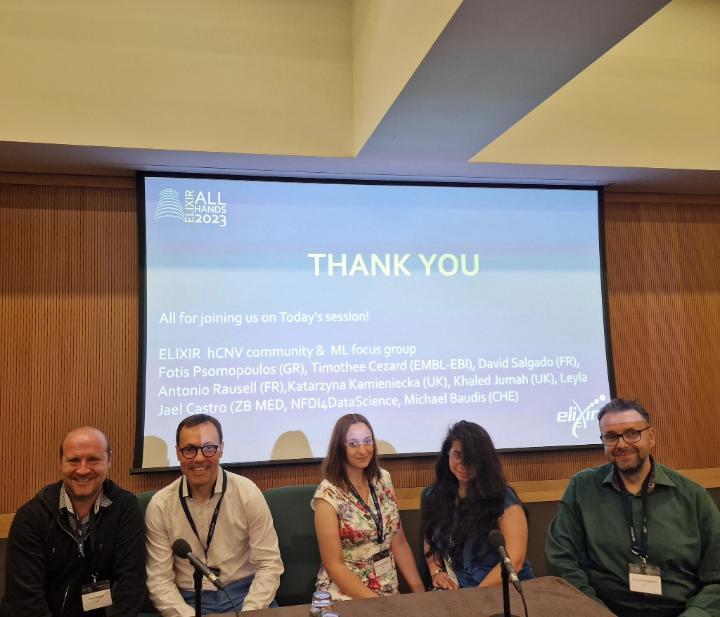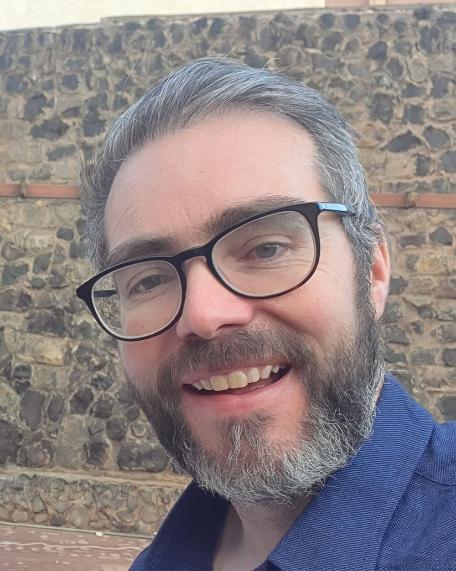Computational and Data-Driven Science
The Computational and Data-Driven Science research theme brings together multidisciplinary researchers who use innovative computational approaches to integrate, analyse, and interpret new and repurposed data. We leverage vast and diverse amounts of data to gain value and scientific insights.
Our research expertise spans across machine learning, image analysis and visualisation, digitalisation, statistics and data visualisation, bioinformatics, biostatistics, computational chemistry and biophysics. With these skills, we tackle a multitude of challenges, such as:
- Exploring diseases, ageing and treatment resistance through a multi-omics approach
- Enhancing our understanding of tissues, cells, and biological systems via machine learning applied to bioimaging data
- Employing supercomputers for large-scale molecular modelling of complex chemical and biological systems
- Developing novel digitalisation and visualisation techniques for heritage science
Our driving forces are research excellence, open science principles, and our impact on sustainable social, economic and healthcare development. We believe that computational and data-driven science has the potential to solve some of the world's most pressing problems. We are committed to using our skills to make a positive difference.
Increasing computational and data-driven science capacity at UK institutions will benefit life sciences research by enabling efficient and collaborative data sharing, facilitating comprehensive analysis and insights from diverse datasets.
Prof Krzysztof Poterlowicz - Director of Research
2024 NorthernBUG conference
The University of Bradford was represented at the recent meeting of the network of bioinformaticians and users or bioinformatics services in the North of England (NorthernBUG 11) by Professor Krzysztof Poterlowicz, Dr Katarzyna Kamieniecka and Dr Khaled Jumah. The researchers connected with colleagues from across the region, shared their latest work in FAIR (Findable, Accessible, Interoperable, and Re-usable) training, and exchanged updates with other research groups across the region.

2023 Galaxy Community Conference (GCC2023) fellowship
Katarzyna Kamieniecka, University of Bradford Lead Data Stewardship Trainer, has been selected as a recipient of the fellowship program for the Galaxy Community Conference 2023 in Australia. Together with Professor Krzysztof Poterlowicz, she took part in the Galaxy Community Staff Exchange Programme and presented her work on FAIR Data management training in the form of both a talk and an interactive poster.

2023 ELIXIR All Hands meeting
The University of Bradford presented several activities across diverse areas at the 2023 ELIXIR All Hands meeting. The meeting brought together ELIXIR members across Europe to discuss achievements and future plans. Katarzyna Kamieniecka, Lead Data Stewardship Trainer, with Professor Krzysztof Poterlowicz, delivered training focusing on human copy number variation and machine learning. Katarzyna also presented the poster on the Data Stewardshing Fellowship led by the University of Bradford. Xenia Perez-Sitja, Community Manager of this initiative, led a workshop on training gaps in data management and presented the work of the ELIXIR Research Data Management Trainer Network.

Recent news from the Computational and Data-driven Science theme
Intermediate Software Development Workshop
The University of Bradford, together with the Earlham Institute, is organising a workshop in Intermediate Software Development. This course will equip researchers with the skills to write robust, collaborative software for their research projects, including version control, testing frameworks, and design techniques. The course will run 20 May – 24 May 2024 09:30-16:30. Further information and registration information is available here: https://shorturl.at/vAMXZ.
BioFAIR Roadshow
The BioFAIR Roadshow is visiting Bradford on 24th April 2024 (10:00-13:00). The project aims to introduce researchers to new ways to manage and analyze research data. It is a great opportunity for supporting life science research in the UK.
Cancer Research UK Science and Innovation webinar
Lead Data Stewardship Trainer Katarzyna Kamieniecka recently shared insights into the ELIXIR-UK data stewardship initiative and training as part of the "Maximising the impact of data webinar series" by Cancer Research UK, which aims to unleash the potential of data science. Katarzyna Kamieniecka discussed how to make research data findable, accessible, interoperable and reproducible (FAIR). The webinar took place on Monday 27 November at 1-2pm.
CRUK Cancer News: Research with integrity
The CRUK Cancer News website recently published the article “Research with integrity – all the fun of the FAIR”. FAIR (findable, accessible, interoperable and reusable) research is a collaborative effort of the Lead Data Stewardship Trainer at the University of Bradford, Katarzyna Kamieniecka, and CRUK Research Integrity and Training Adviser, Dr Andrew Porter. This article outlines some simple steps to make research FAIR to benefit your research and the work of others in the future. This project is led by the University of Bradford with the principal investigator Prof. Krzysztof Poterlowicz.
ISMB/ECCB 2023 Fellow
Katarzyna Kamieniecka, Lead Data Stewardship Trainer at the University of Bradford, was chosen to participate in the ISMB/ECCB 2023 Conference's fellowship program. She shared her insights on FAIR Data management training in the form of an interactive poster, with the guidance of Professor Krzysztof Poterlowicz.
Galaxy Training Network
Khaled Jum'ah, Bioinformatics Research Assistant, and Katarzyna Kamieniecka, Lead Data Stewardship Trainer, with Professor Krzysztof Poterlowicz’s supervision and guidance, provide researchers with online tools and training materials focusing on computational methods using the Galaxy platform. Their most recent work has been published on the Somatic Variant Discovery from WES Data Using Control-FREEC.
Train the Trainer workshop
Katarzyna Kamieniecka, Lead Data Stewardship Trainer, co-led and delivered a UK-wide Train the Trainer (TtT) workshop to establish and develop a pool of ELIXIR trainers to run effective training courses in bioinformatics and related fields. Trainers had a chance to reflect on what makes good training, what skills are needed to be a good trainer, different learning styles and methods, how to design a training session, how to write learning objectives, and how to develop training materials and collect feedback.
Research expertise
The research in the Computational and Data Driven Science research theme comprises specific knowledge and expertise in a range of subjects:
- FAIR Data Management: The FAIR (Findable, Accessible, Interoperable, Reusable) data stewardship provides training and expertise for sharing and publishing digital assets. We offer support to researchers and data professionals to implement FAIR principles and practices in their work. This includes data management plan development, curation and archiving and publishing data in open repositories.
- Computational tools and pipeline development, use-case workflows, and benchmarking: We provide essential components of building and evaluating high-performance computational solutions, including developing new algorithms, optimizing existing software, and integrating different tools into a single workflow.
- Machine learning, research data & computing infrastructure: We support the application of bioinformatics to the analysis of large and complex datasets in life sciences to identify new patterns and relationships that would be difficult or impossible to find using traditional methods.
- Computational chemistry: Support for large-scale molecular modelling of complex chemical and biological systems.
- Heritage science: We support and develop novel digitalisation and visualisation techniques for visualising and analysing heritage research.
Please contact the research theme leads for more information or to discuss potential collaborations.
Research Leads
The theme is led by a Director of Research and two deputies who are jointly responsible for the scientific direction of the theme.
Research theme members
The Computational and Data-driven Science theme consists of several research groups working together to perform collaborative, multi-disciplinary research.
Visit our Research theme members page.



